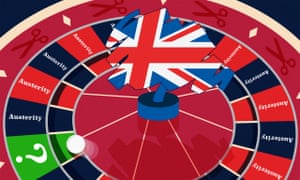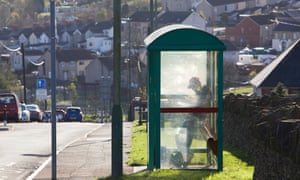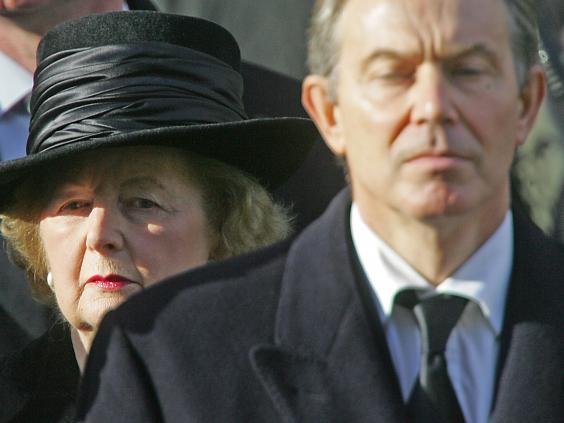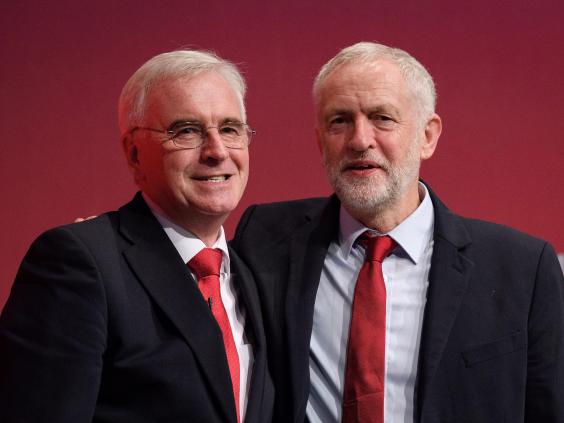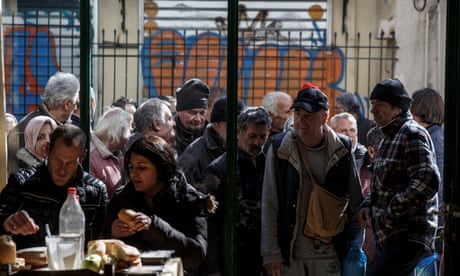
Posters for a rent strike during the coronavirus lockdown, Bristol, 31 March 2020. Photograph: Ben Birchall/PA
Recent weeks have been profoundly disorienting, as we all adjust to life in lockdown during a pandemic. For the left, they have also been politically disorienting, as a Conservative government borrows hundreds of billions of pounds to underwrite wages.
Some have been mesmerised by this spectacle, convinced that a socialist utopia is just around the corner. We need to snap out of this, and fast. Instead, we must ask the same questions we always should: who benefits from these interventions, and who pays? Who will be empowered and who disempowered?
The crisis itself is already exacerbating economic inequalities. At first sight, the government’s income support schemes might look as though they will help to redress this. In reality, they will achieve almost exactly the opposite. It’s been widely noted that many people remain excluded from the safety net, but the problem goes deeper than this. Where is all this money coming from – and where is it ultimately going?
The answer lies principally in a massive expansion of debt. Wage support is being funded by large-scale public borrowing of the kind we were told was unaffordable just a few months ago (although this is now being supplemented by direct financing with newly created money from the Bank of England). Yes, this could usher in a new era of state intervention – but it could just as easily herald a new era of austerity.
Conservatives such as Sajid Javid – who tweeted that “the whole point of fiscal conservatism in normal times is to be able to act decisively if there is a genuine economic emergency” – are already trying to reconcile the crisis response with austerity politics. Fiscal hawks will be keen to draw a line under the crisis period and insist that we now need to tighten our belts again to pay for it.
Meanwhile, mortgage and rent “holidays” and guaranteed loans for small businesses require people to take on private debts that they will have to pay back when the crisis is over. One way or another, then, the bulk of the costs will still eventually be borne by ordinary people.
On the other hand, virtually no sacrifices have been demanded of banks, landlords or profitable corporations, such as utility companies. The only people in society not being asked to share the burden are “rentiers”: those who make money by owning assets they can charge others to use.
Landlords have access to mortgage holidays but are not required to pass these on to their tenants. If they do, they can recoup any missed rent when the crisis is over. Since the same cannot be said for tenants’ lost income, many will be pushed further into debt or face eviction.
Banks are enjoying government loan guarantees with few strings attached. This means that they are not shouldering the risk of extending credit to struggling businesses during a downturn – that is being borne by the state. Meanwhile, mortgages and credit card debt will still be repaid in full – or with added interest if holidays are granted.
Given all this, wage support acts primarily to protect rentiers’ income streams by enabling working people to keep paying rent and bills, and debtors to keep making loan repayments to their creditors.
The government moved swiftly to protect the interests of rentier capital but has consistently dragged its feet in protecting the interests of workers. Indeed, most support has been channelled through banks, landlords, employers and utility firms – with government simply trusting them to benignly pass it on. This is at best naive and at worst irresponsible.
Guidance innocently declares that mortgage holidays for landlords “will mean no unnecessary pressure is put on their tenants”. Unsurprisingly, emerging anecdotal evidence suggests precisely the opposite. The business interruption loan scheme has already had to be overhauled after banks failed to extend low-cost credit to struggling businesses, while the Financial Conduct Authority was forced to stop them hiking overdraft charges. Meanwhile, some large companies are still laying off workers, or at best, pocketing government support and refusing to top it up from their own coffers.
The government has built an economic bunker from which rentiers will emerge unscathed into the scene of devastation wreaked on the rest of the population. Many will find their bank balances considerably enhanced, since they have been unable to spend money in theatres, bars and restaurants. As economist Gary Stevenson points out, if some of this windfall is spent on property, the result will be to push house prices up – adding insult to injury for the low-paid renters who will have borne the brunt of the crisis. All of this is simply indefensible.
Crises always create winners as well as losers. The bank bailouts of 2008 should have taught us that state intervention is not necessarily progressive. Back then, the state assumed the liabilities of finance capital and ordinary citizens ultimately footed the bill. Now, we are seeing a very similar story play out again – but the mechanisms at work are more subtle, the implicit subsidies for rentier interests passing under the radar.
The left must ruthlessly follow the money and ask in whose pockets it will end up. It must stand alongside those demanding that the big winners in our economic system pay their share: groups such as London Renters’ Union, demanding a true rent freeze. Wetherspoons workers, still fighting to be paid in full. The Jubilee Debt Campaign, calling for personal debt repayments to be frozen and ultimately written off.
Perhaps, as Stevenson suggests, we should also be demanding an emergency wealth tax to redress this huge tilting of the scales towards the asset-owning rich. Without such measures, we should be under no illusions: this crisis will leave our economy even more unequal and unstable than it was before.




